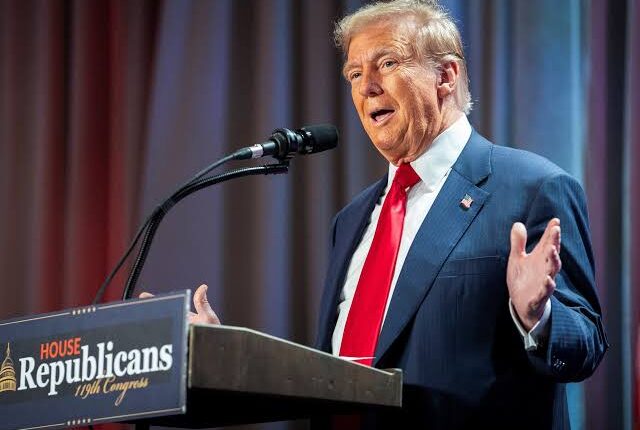U.S. President-elect Donald Trump announced plans on Monday to impose a 25% tariff on all imports from Canada and Mexico starting on his first day in office. Additionally, he pledged a 10% tariff on goods from China, citing concerns over illegal immigration, drug trafficking, and fentanyl smuggling.
“As of January 20th, I will sign Executive Orders to impose a 25% tariff on all products from Mexico and Canada due to their open borders,” Trump wrote on Truth Social. He stated the tariffs would remain in place until both countries address the issues of drug trafficking and unauthorized migration.
These measures may violate the U.S.-Mexico-Canada Agreement (USMCA), a trade deal Trump himself signed into law in 2020, which promotes duty-free trade among the three nations. Canada and Mexico are the United States’ largest trading partners, with over 75% of Canadian and 83% of Mexican exports destined for the U.S.
Regarding China, Trump accused Beijing of insufficient efforts to halt the flow of illicit drugs into the U.S. from Mexico. He plans to levy a 10% tariff on all Chinese goods in addition to existing duties.
The proposed tariffs have drawn concerns from economists, who warn that they could stoke inflation, disrupt supply chains, and provoke retaliation. They also noted that such tariffs would primarily affect American businesses and consumers, who would bear the cost of increased import duties.
Trump’s announcement caused financial ripples, with the U.S. dollar strengthening against the Mexican peso and Canadian dollar. Stock markets in Asia and U.S. futures also experienced slight declines.
Neither Canada’s Prime Minister’s office, the Canadian foreign ministry, nor Mexican officials have responded to Trump’s statements. Meanwhile, China’s embassy in Washington has yet to comment on the proposed measures.
Economists caution that these policies could push trade back to pre-World War II tariff levels, potentially destabilizing global economic relations.


